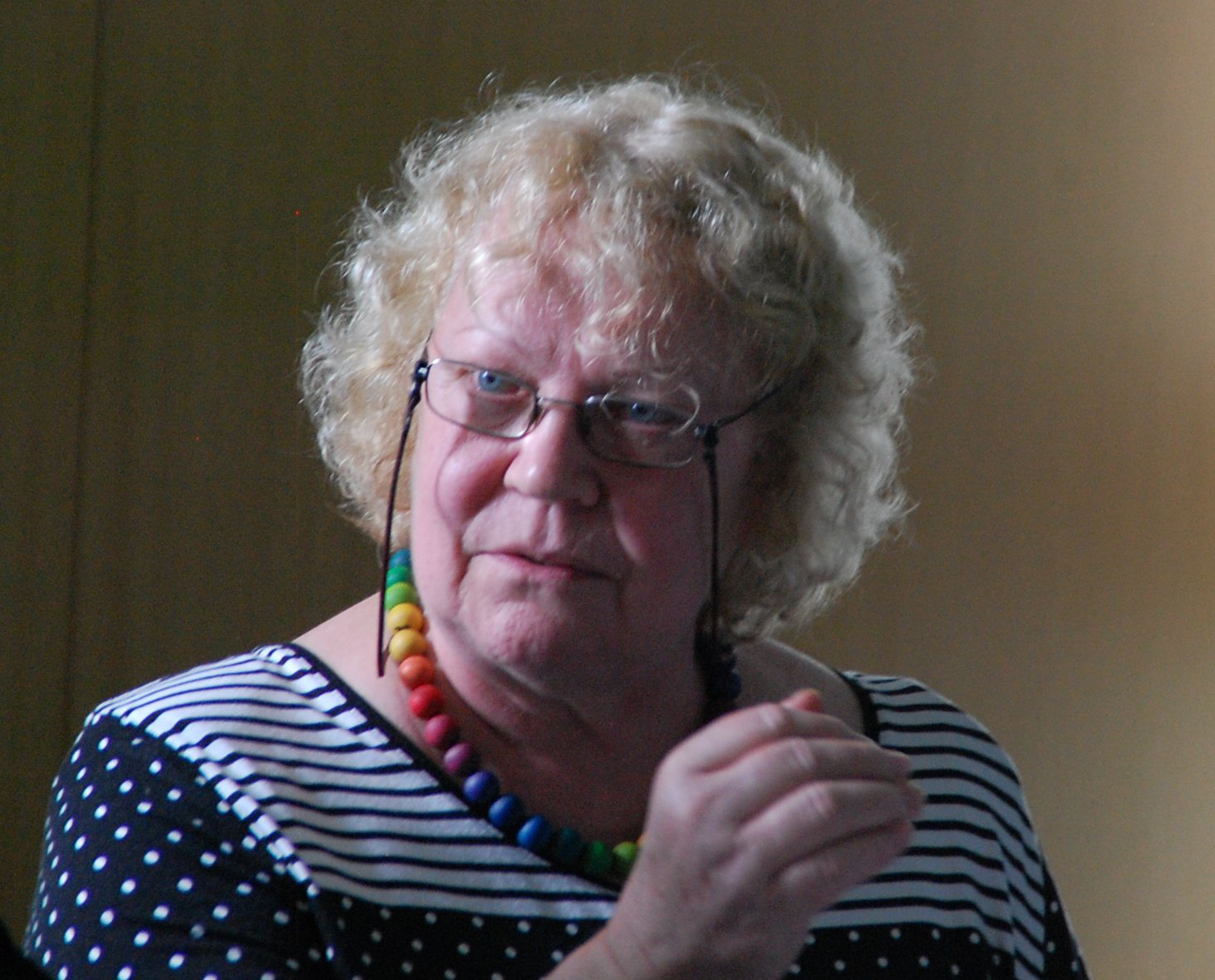Bärbel Dr. Schindler-Saefkow, née Saefkow
Born March 3, 1943
Teacher, historian
Secretary-General of the International Ravensbrück Committee (IRC) from 2002 to 2019
Daughter of Anton Saefkow and Aenne Saefkow (in Ravensbrück, March 1945 – 28 April 1945)
In 2020 the State of Brandenburg granted Dr. Bärbel Schindler-Saefkow its highest honour, the Distinguished Service Award.

Dr. Bärbel Schindler-Saefkow, Foto: J. Bochat
Bärbel Saefkow was born on March 3, 1943, during the night-time bombing of Berlin in World War Two. She survived the war thanks to her older sister, who cared for her until the return of her mother. After her schooling , Bärbel studied to become a teacher of History and German Studies. Her mother did not live to attend her graduation; severe illness resulted in her death in 1962.
As a child and adolescent Bärbel often accompanied her mother during her work organising a National and International Association of Former Ravensbrück Prisoners, which set about creating a museum and memorial center at the site of the concentration camp, and she was thus able to meet many of the generation of former prisoners who were doing the pioneer work. When the Memorial was officially inaugurated in September 1959 she gave a speech as representative of the youth. In all the many years since, meeting with people visiting the memorial site or elsewhere, she always remained deeply dedicated to fulfilling that basic wish of the survivors to keep their message alive: “Ravensbrück - Never Again”!
After receiving her doctorate in 1996 she continued her work at the Ravensbrück Memorial Site. A main accomplishment of those years was the compilation of a memorial book with the names, all that could be found in many different countries, of 13,161 women and men who were killed at Ravensbrück. This meant working with the International Ravensbrück Committee, which she joined in 2002 and in which she was later elected to be Secretary-General, the first representative of the second generation in this position. In 2005 she published a brochure in five languages which told the history of the IRC. She remained its Secretary-General until 2019.
Bärbel was married, later divorced and is the mother of two sons.
In 2020 the State of Brandenburg granted her its highest honour, the Distinguished Service Award.
Her parents, Anton and Aenne Saefkow, took part as Communists in an anti-fascist resistance organisation which had more than 500 members.
Aenne Saefkow (1902-1962) joined the Communist Youth Organization of Germany (KJVD) in 1920 and began work for the Central Committee of the Communist Party of Germany in 1926. After the fascist seizure of power in 1933 she became a member of the secret anti-fascist resistance movement. In July 1944 Anton and Aenne Saefkow were both arrested in Berlin by the Gestapo. Her father was executed in Brandenburg and her mother held under what was called “protective arrest”. After being transferred from one prison to another, she was sent to the over-filled Ravensbrück Concentration Camp in March 1945. Because of the confused situation there she did not receive an official number, and at the advice of a comrade was able to take on the number of a deceased French woman - “108 273”. As part of the “Death March” to evacuate the camp she was freed by the Red Army near the village of Priepert.
After returning to Berlin she took on the jobs of mayor of the boroughs of Pankow and Prenzlauer Berg with the giant responsibility of solving post-war social problems and starting to rebuild Berlin.
(Translation: Victor Grossman)